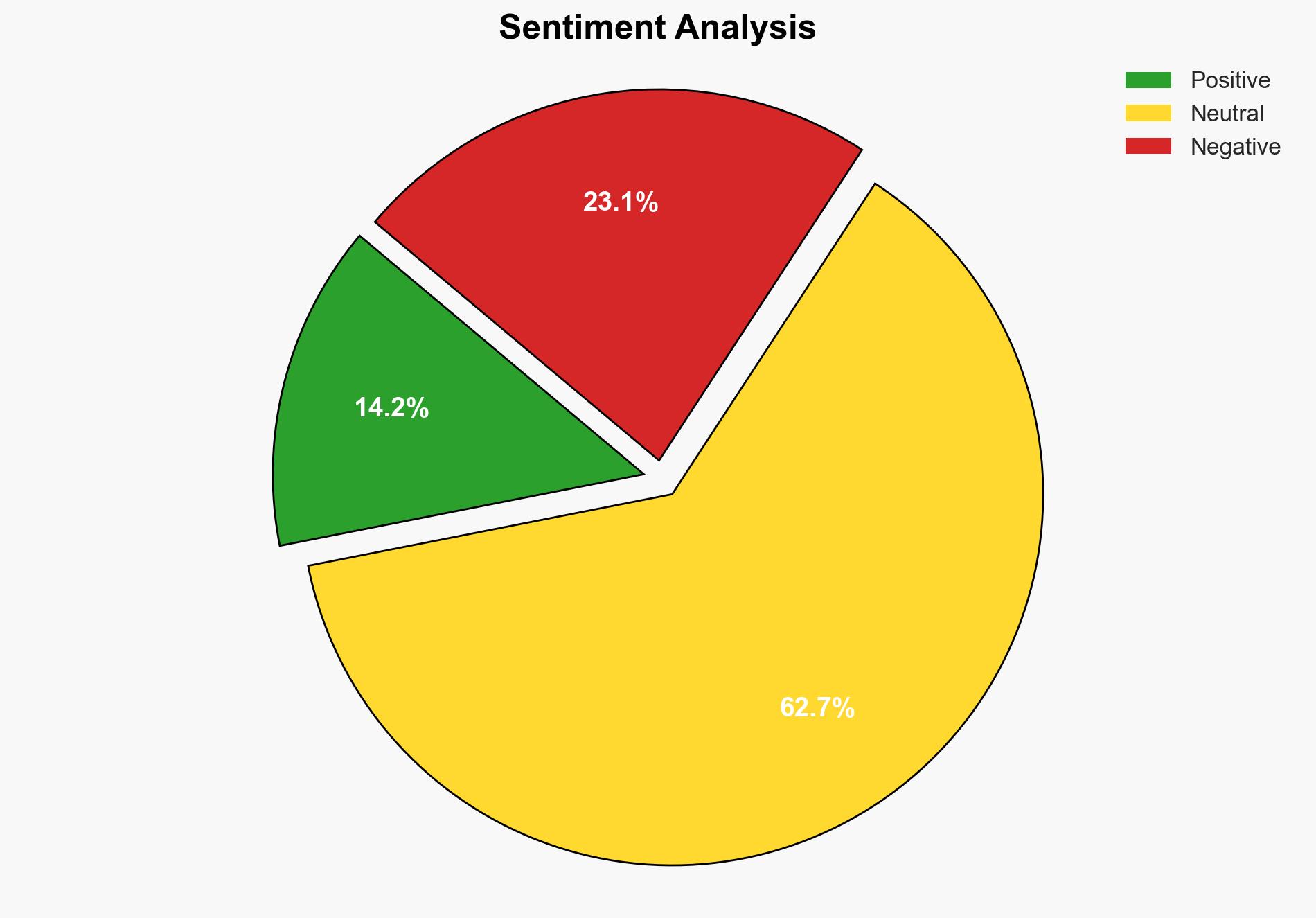Can Trump legally force US universities to silence protests – Al Jazeera English
Published on: 2025-03-05
Intelligence Report: Can Trump legally force US universities to silence protests – Al Jazeera English
1. BLUF (Bottom Line Up Front)
The analysis reveals that the legal feasibility of compelling US universities to silence protests through executive orders is highly questionable. The proposed measures by Trump, including withholding federal funding, face significant legal and constitutional challenges. The potential impact on civil liberties and academic freedom is substantial, raising concerns among legal experts and educational institutions. Strategic recommendations focus on safeguarding free speech while addressing the underlying issues prompting protests.
2. Detailed Analysis
The following structured analytic techniques have been applied for this analysis:
SWOT Analysis
- Strengths: Federal funding leverage; potential to influence university policies.
- Weaknesses: Legal challenges; potential violation of First Amendment rights.
- Opportunities: Encourage dialogue on campus policies; address anti-Semitism concerns.
- Threats: Erosion of academic freedom; increased polarization and unrest on campuses.
Cross-Impact Matrix
The potential enforcement of these measures could lead to increased tensions between federal authorities and educational institutions. Neighboring regions may experience similar policy pressures, impacting regional educational stability and international academic collaborations.
Scenario Generation
- Best-case scenario: Constructive dialogue leads to balanced policies that protect free speech while addressing hate speech.
- Worst-case scenario: Legal battles ensue, resulting in significant disruptions to academic operations and increased student unrest.
- Most likely scenario: Universities resist compliance, leading to prolonged legal disputes and policy adjustments.
3. Implications and Strategic Risks
The proposed executive orders pose risks to national security by potentially inciting further unrest and polarization. Regional stability could be affected as universities become battlegrounds for ideological conflicts. Economic interests are at risk due to potential disruptions in university operations and international collaborations.
4. Recommendations and Outlook
Recommendations:
- Engage in dialogue with educational institutions to develop policies that balance free speech and security concerns.
- Consider legal frameworks that protect civil liberties while addressing hate speech effectively.
- Enhance monitoring and reporting mechanisms to address anti-Semitism and other forms of discrimination without infringing on free speech.
Outlook:
The outlook suggests a contentious legal and political environment as universities and federal authorities navigate these challenges. Best-case scenarios involve collaborative policy development, while worst-case scenarios predict prolonged legal battles and campus unrest. The most likely outcome involves gradual policy adjustments and ongoing legal scrutiny.
5. Key Individuals and Entities
The report mentions significant individuals such as Trump, Elise Stefanik, Jenin Younis, and Radhika Sainath. Key entities include US universities, the federal government, and legal advocacy groups. These individuals and entities play crucial roles in shaping the discourse and legal challenges surrounding the proposed measures.





